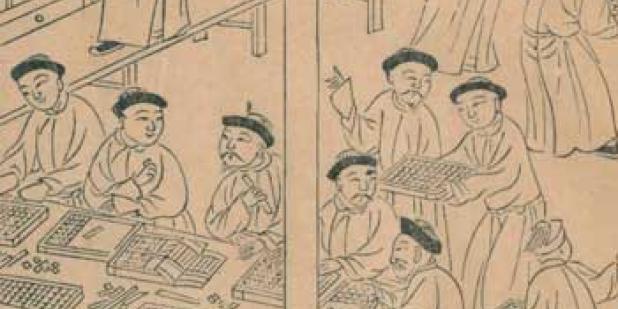Join us for a free one-day workshop for educators at the Japanese American National Museum, hosted by the USC U.S.-China Institute and the National Consortium for Teaching about Asia. This workshop will include a guided tour of the beloved exhibition Common Ground: The Heart of Community, slated to close permanently in January 2025. Following the tour, learn strategies for engaging students in the primary source artifacts, images, and documents found in JANM’s vast collection and discover classroom-ready resources to support teaching and learning about the Japanese American experience.
Fake News and Information Leaks: Constructing Documentary Authority in Late Imperial China
The Berkeley Center for Chinese Studies presents a colloquium talk with Emily Mokros, a postdoctoral fellow at the Center, and Nicolas Tackett, a professor of history at UC Berkeley.

The Berkeley Center for Chinese Studies presents a colloquium talk with Emily Mokros, a postdoctoral fellow at the Center, and Nicolas Tackett, a professor of history at UC Berkeley.
In seventeenth-century China, the Qing dynasty inherited a troubled information order. Within the bureaucracy, lengthy procedural correspondence buried urgent messages and covert networks troubled official hierarchies. Beyond the reach of the state, gossip and rumor endangered the stability of the new dynasty. This paper analyzes the negotiation of information scandals in the first century of Qing rule in China. It argues that in their attempts to restore the information order, Qing political agents established new boundaries between influence and authority, clerks and officials, and conversations and texts. The court promoted gazettes as authoritative foils to the rumors, tabloids, and forgeries that made up the “fake news” of early modern China. In so doing, by the mid-eighteenth century the Qing state shifted the material basis of politics from talk to text, and from story to document.
Featured Articles
Please join us for the Grad Mixer! Hosted by USC Annenberg Office of International Affairs, Enjoy food, drink and conversation with fellow students across USC Annenberg. Graduate students from any field are welcome to join, so it is a great opportunity to meet fellow students with IR/foreign policy-related research topics and interests.
RSVP link: https://forms.gle/1zer188RE9dCS6Ho6
Events
Hosted by USC Annenberg Office of International Affairs, enjoy food, drink and conversation with fellow international students.
Join us for an in-person conversation on Thursday, November 7th at 4pm with author David M. Lampton as he discusses his new book, Living U.S.-China Relations: From Cold War to Cold War. The book examines the history of U.S.-China relations across eight U.S. presidential administrations.




